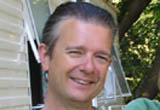 In August 2012, Claudia was woken at 3:00 in the morning when soldiers burst into her home in Veracruz City, Mexico. They tied her hands and blindfolded her. They took her to the local naval base where they tortured her: they subjected her to repeated electric shocks, then they wrapped her in plastic, and beat her—the plastic was to disguise the marks. She was accused of being a gang member, something she vehemently denied.
In August 2012, Claudia was woken at 3:00 in the morning when soldiers burst into her home in Veracruz City, Mexico. They tied her hands and blindfolded her. They took her to the local naval base where they tortured her: they subjected her to repeated electric shocks, then they wrapped her in plastic, and beat her—the plastic was to disguise the marks. She was accused of being a gang member, something she vehemently denied.
The next day she was forced to sign a statement unread. In court a week later, she retracted it and testified to the abuse she had suffered. All but one of the charges against her were dropped, and the judge ordered the federal attorney general’s office to investigate. This was nearly two years ago. Nobody has yet been held to account, and in all that time she has received no specialist medical and psychological assessment.
Forensic medicine is a critical link in the detection and prevention of human rights abuses. The careful examination of victims, and the documentation of findings, can have a decisive role in identifying abuse and bringing the perpetrators to justice. The provision of evidence—from the forensic doctor, to the police, and courts—can mean the difference between a fair trial and a miscarriage of justice.
But too often, and in too many places, the forensic link is weak. We know there are complex reasons for this. Some of the problems are in-country. In Mexico, according to Amnesty International, where the use of torture by security forces is routine, there are multiple difficulties: severe shortages of qualified staff, lack of training in the identification and recording of abuse, professional isolation, a culture of medical complicity, and a lack of independence from attorney generals’ offices. Confidential testimony has been passed to the United Nations, which states that physicians in some parts of Mexico are frequently forced to change their findings on the direct order of the attorney general’s office.
Setting aside explicitly corrupt practice, it is widely known that there are ethical challenges faced by all forensic doctors: sometimes called the problem of dual or conflicting loyalties. Forensic doctors have duties to patients, but they also have an independent and disinterested duty to promote justice. Forensic doctors, that is, face two ways: to the patient, but also to the criminal justice system that stands behind and above them. Sometimes, where for example they are recording the sequelae of abuse, the interests of justice and the patient can coincide; but sometimes they will be antagonistic.
Above all, what is required of the forensic physician is clinical impartiality and objectivity: an eye at once clear and cool. Courts must have recourse to the facts, and it is the duty of the forensic doctor to bring before it clinical information that is relevant to the case.
Unfortunately, all too often, the clinical impartiality of forensic doctors has been eroded. Mexico provides an extreme example of a more general problem: the state co-option of medical skills to serve political ends. In some cases, this can amount to daylight abuse: a failure to record clear evidence of harm, the falsification of medical reports. In other places, the problems are more subtle: forensic doctors have at times aligned themselves too readily with the goals of the employing institution, and a critical and independent eye on the harms of institutional failure closes.
We also know that speaking out can be difficult. Given the importance of medical testimony, forensic physicians can themselves become targets. In some parts of the world, forensic doctors and their families have been threatened with violence. Reports of the professional and social ostracisation of those who raise concerns are commonplace. Less dramatically, professional isolation and a lack of training and experience can all too easily result in doctors becoming inured to abusive institutions. It can take stubbornness and courage to keep your eyes open where those in power would rather you were blind.
Today is the United Nations International Day in Support of Victims of Torture. Its long term goal is the global eradication of torture. As Claudia’s story makes clear, torture is still widespread and this will not be an easy ask. In the face of chronic under funding, political priorities seldom focus on the provision of impartial forensic excellence to those caught up in the criminal justice system. It is all the more vital that professional bodies, both nationally and internationally, seek ways to support forensic medical professionals. For without properly trained and resourced professionals, and the impartial clinical evidence they provide, abuse can proliferate and justice dissolve into a sham.
Link to Amnesty International’s Stop Torture Project.
Link to BMA human rights page.
Julian Sheather is ethics manager, BMA. The views he expresses in his blog posts are entirely his own.
